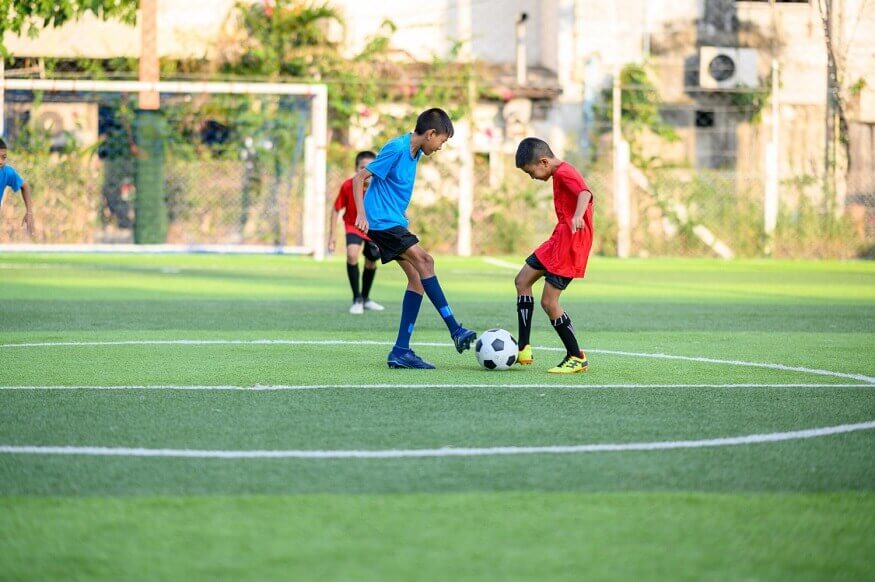Growing children need a healthy and nutritional diet which can support their growth and developmental needs. The need for nutrition is even more so critical if children are athletes and engaged in sports activities. Nutrients serve the purpose of fueling the natural growth engine of children’s mental and physical development. Children naturally are active right through the day and thus their mind and body need nutrients to not just support growth but also replenish the energy consumed during their regular activities. If in case the child is into rigorous sporting activity and athletics, the nutritional need is further elevated. This creates special requirements for young athletes to fulfil their nutritional needs. Proper nutrition can help young athletes in the following ways:
- Improves their immunity
- Reduces fatigue
- Aids in recovery
- Increases strength and focus
- Helps enhance performance
This article talks about the dos and don’ts when it comes to fulfilling the nutritional needs of young athletes.
Also Read: How to prepare your child for sports season
Frequency of eating
A four-course daily meal of breakfast, lunch, evening snacks and dinner might be the norm for most but not for young athletes engaged in rigorous sporting activities. Young athletes need to carefully watch the frequency at which they eat. They need to eat more frequently to replenish the energy lost on the playing field. Rigorous sporting activity leaves children low on energy and sugar, which only frequent eating can help replenish. Young athletes need to maintain their energy and sugar levels uniform throughout the day and that can only be achieved by carefully planning their food consumption at frequent intervals.
Keep themselves hydrated
Rigorous sporting activity and constant sweating lead to significant loss of liquids and dehydration of bodily fluids. If not replenished at regular intervals, this can lead to severe dehydration. One of the indicators of hydration level is the colour of the urine – pale yellow when properly hydrated and dark yellow when dehydrated. Proper intake of water and other fluids at regular intervals must be ensured to avoid dehydration. Dehydration can severely affect an athlete’s performance and well-being on the field.
Avoid Health Drinks
Health drinks are advertised to enhance focus and concentration on the sporting field. However, most health drinks are rich in caffeine which can lead to elevated heart rate and blood pressure levels. Excess intake of caffeine also leaves young athletes susceptible to dehydration.
Also Read: Foods That Increase Your Metabolism In Children
Consume sufficient carbohydrates
Complex carbohydrates are an excellent source of energy for the body. A low-carb diet can leave young athletes low on energy levels. A healthy diet of good carbs is essential for young athletes to maintain high energy on the playing field. Whole grains such as brown rice and whole wheat bread are excellent sources of complex carbohydrates. However, bad or simple carbs such as those found in candies and carbonated drinks must be avoided at all costs. These simple carbs give a temporary boost of energy due to a spike in blood sugar levels but will be short-lived and soon the young athletes will run out of energy.
A balanced diet of macronutrients
On game day, young athletes should have a healthy diet that is well-balanced in complex carbs, healthy fats, vitamins, minerals, and proteins. While it is best to consult an expert dietician, it is recommended that an athlete’s diet on game day must be rich in carbs, moderate in proteins, and low in fat content.
The gap between eating and playtime
Do not eat right before playtime. If you do so, a significant portion of your energy will be consumed in the digestion of the food you eat. It is recommended to give your body 3 to 4 hours to digest the food before you get on to the playing field. If you do need to eat just before or during game time, try low-fibre fruits such as a banana, or vegetables. These will give you the required energy without taking away significant energy resources for digestive purposes. Once you are done with the game, Have a meal within thirty minutes after the game time and then again after two hours to allow for complete recovery of bodily fluids and energy lost during the game.
Also Read: Sports: Outdoor Activities for Students
Eat what works for you
Sports nutrition recommends a healthy mix of carbs, protein, fibre and fat for young athletes. While there might be many recommendations on what you should eat, always keep in mind that each body has its own unique needs and requirements. Try different things and gradually work out a regime that works for you. Do not just eat what others eat or what others expect you to eat. Chart out your dietary regime. There are ample examples of sportspersons and athletes who have achieved great heights on the sporting field while eating very different types of food. For example, some athletes are pure vegetarians while some swear by the nutritional benefits of meat. Both in their way have achieved great heights in their respective fields.
Sports and athletics are an integral part of the life of a typical EuroSchool student. While encouraging our students to give their absolute best on the field, our sports staff and dietary experts also take utmost care of the nutritional needs of our young athletes. It is no wonder our students excel at various sports at all levels.










